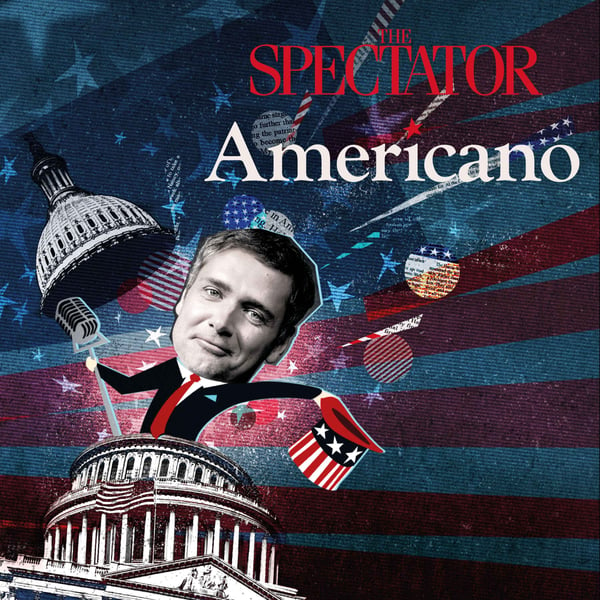What Trump’s ‘hush money’ trial tells us about the American legal system
Americano
The Spectator
4 • 714 Ratings
🗓️ 20 April 2024
⏱️ 21 minutes
🧾️ Download transcript
Summary
Transcript
Click on a timestamp to play from that location
| 0:00.0 | Before we begin this podcast, I'd like to tell you about a special deal. |
| 0:04.0 | Subscribe today to The Spectator for just £12 and receive a 12 week subscription in print and online, along with, here's the magic bit, a free £120, John Lewis or Waitrose Voucher. |
| 0:15.9 | Go to spectator.com.uk forward slash voucher. |
| 0:34.5 | Hello and welcome to the Americano podcast, a series of discussions about American politics, power, and prejudices. |
| 0:41.2 | This year, 2024, is an election year in America, a presidential election year. |
| 0:47.6 | And so we will be doing two podcasts a week, rather than our usual one, because we want to and because we know you can't get enough Americano in your life. |
| 0:51.5 | I am delighted to be joined by none other than Alan Dershowitz, who is a very well-known |
| 0:57.3 | American lawyer and author of Get Trump, The Threat to Our Civil Liberties, Our Due Process, and Our Constitutional |
| 1:05.6 | Rule of Law. And it's a book of extraordinary relevance, really, and particularly this week, as Donald Trump |
| 1:13.2 | starts his first criminal trial. And this case, the Manhattan case, Alan, people are saying |
| 1:21.8 | that it is the weakest in many ways legally of the indictments, but it may be the only one that gets done in time for the |
| 1:29.0 | election and maybe the only way in which Donald Trump will be called a convicted felon |
| 1:33.3 | before November 5th. Is that your reading of it? Well, it's not only the weakest case of the |
| 1:38.8 | four. It's the weakest case I've seen in 60 years of practicing teaching and writing about criminal law. |
| 1:45.4 | It starts with a misdemeanor that's way beyond the statute of limitations. |
| 1:49.5 | And then to turn it into a felony, you have to prove that in his mind, in his mind, |
| 1:54.9 | psychoanalytically, the only purpose he had for keeping this hush money secret and not disclosing it was to influence |
| 2:03.1 | the election, not to protect his wife, not to protect his business interests, not to protect |
| 2:08.3 | his children. And if that's the case, then you can argue that he did it for purposes of violating |
| 2:15.1 | election law, which is a federal crime, but the federal government |
| 2:18.5 | refused to prosecute it. So you have the city government going after somebody for a federal |
| 2:24.0 | crime that the federal government didn't want to prosecute. It's the most bizarre combination |
... |
Please login to see the full transcript.
Disclaimer: The podcast and artwork embedded on this page are from The Spectator, and are the property of its owner and not affiliated with or endorsed by Tapesearch.
Generated transcripts are the property of The Spectator and are distributed freely under the Fair Use doctrine. Transcripts generated by Tapesearch are not guaranteed to be accurate.
Copyright © Tapesearch 2025.

